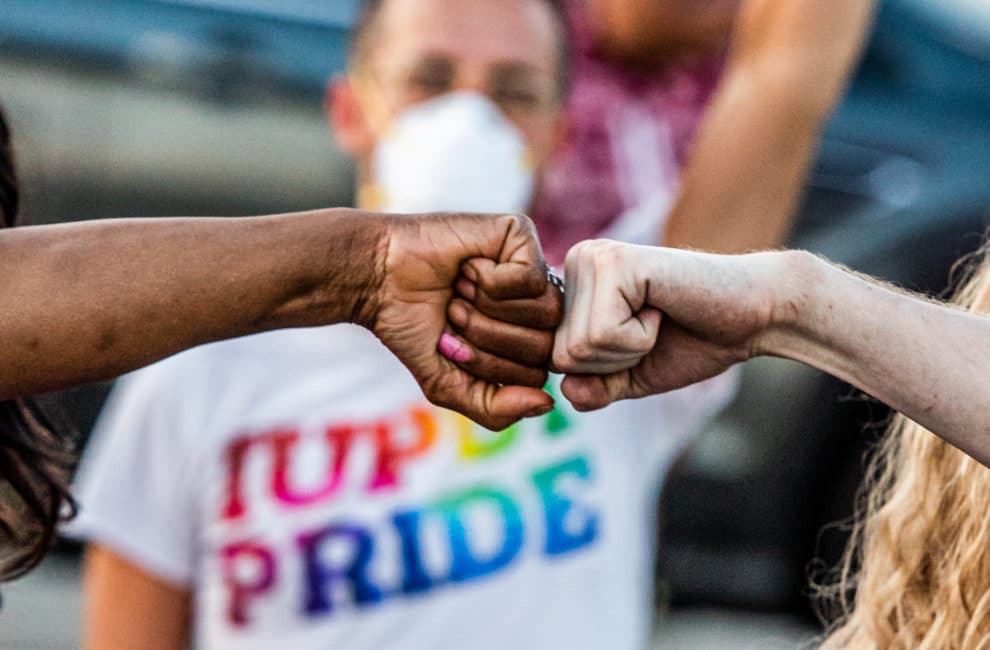Protesting Helped Me Find My Place

Photo by Ted Somerville
On the ride to the first protest I ever attended, I remember concentrating on the numbers I was writing on my arm so as not to smudge them. We had been instructed to write our emergency contact information on our bodies just in case any harm came to us during the protest and for some reason we would be rendered “unidentifiable.” But the gravity of the gesture didn’t dawn on me until much later. I was more worried about just fitting in.
I arrived at the Black Lives Matter sit-in with a small circle of family members. As we joined 10,000 others who had gathered around the Indiana Statehouse, a million thoughts raced through my head. Will I be judged by how loud I’m shouting? How I’m dressed? The color of my skin? Unfortunately, doubting my place is a common experience for me.
As a biracial bisexual woman, I kind of fit into a trifecta of marginalized groups. I have dark hair that’s somewhat loose and curly, light brown eyes, and light brown skin—pretty typical features of a biracial person. But because of the way I look and act—or don’t—I sometimes find it hard to fit into society.
My birth father is Black and left my mother before I was born. As a result, I’ve felt disconnected from my Black heritage for most of my life, in addition to having a complexion that seems to perplex others. I am often regarded as too white for the Black kids and too Black for the white ones. And in terms of my sexuality, because I find myself attracted to both men and women, people tell me that I’m just “going through a phase.” To be me is to exist in a kind of sexual and racial limbo. And that’s on top of being a woman.
Still, I recognize my privilege as a light-skinned child of white parents. I have been fortunate to go to good schools, and my mother has shielded me from a lot of racism. But the older I get (I’ll be a junior in high school this fall), the more I see that neither my education nor my parents can protect me from discrimination—and possibly worse.
Even in my relatively safe environment, I still encounter subtle acts of racism—and stupidity. Not long ago, a boy at my school asked me for “half an n-word pass”—an exemption to say that word—because he’d already gotten the other half from the only other mixed kid in my class. What do you say to that? Another time, when I was shopping with a group of mostly white friends, I dropped my lip balm in a store. As I picked it up, one of the boys in my group joked that I was “stealing.” I’m sure he thought the remark was in jest and harmless. But for the rest of our time at the store, an employee closely followed me.
I drew on those experiences and others that day at the Statehouse, and as the crowd grew, I began to find my way. We chanted, sang, and shouted together. As I stood shoulder to shoulder with like-minded people who had a shared goal, I felt a surge of power and purpose. To me, that’s one of the reasons why this movement is so important. It brings people together and gives them hope.
Dr. Martin Luther King Jr. once said, “Every man of humane convictions must decide on the protest that best suits his convictions, but we must all protest.” How we arrive at that point and channel that dissent differs from person to person. But to be silent is to be complicit—and alone.
Bella Faidley is a junior at International School of Indiana who wants to study journalism, history, and civil rights in college.





